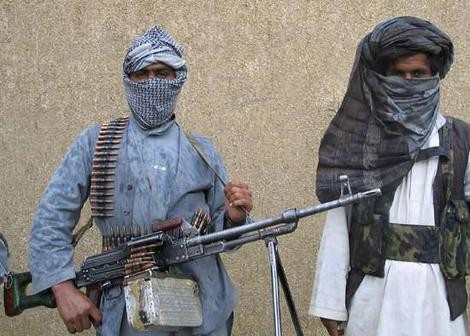Afghanistan: Will the Taliban defeat the US?

In an article published on Monday, the New York Times reveals, after talking directly to the Taliban fighters, that many still blocks remain in the reconciliation process.
The Newspaper approached Toor Jan, a former Taliban fighter who switched sides in February and said others are not following his lead because "the government cannot stand on its promises."
"When I decided to switch sides, I was fed up with fighting," he said. "I cannot pull the trigger anymore. I am just tired of it" he told the newspaper.
Toor Jan's in one of the 1,700 fighters who have enrolled in the 10-month-old program, in which two-thirds of the participants are from the north, where the insurgency is much weaker than in the south.
The Taliban were never in control of the north as The Hezb-i islami (an Islamic organization commonly known for fighting the Soviet occupation of Afghanistan), were always the most influent in this part of the country.
Reports have also emerged that many of the fighters who have taken advantage of the program may not even be Taliban but are just men with weapons who want to take advantage of the financial benefits of the program.
As little progress has been made over the last ten years, Western governments have tried their hardest to come up with a plan that would persuade fighters to switch sides and have pledged $140 million of the total plea of $150 million which are aimed at implementing and developing the program.
The money provides a small, short-term stipend to fighters who change sides, and then rewards their communities with generous development and job programs, rather than handing out money or jobs directly to the fighters.
It is doubtful however that this tactic will succeed in the long run, as when the program is finished, the fighters might run out of money and decide to switch sides again. Also, while western powers have accepted to donate millions the Karzai government will not be able to follow suit and spend the state's money buying the people's loyalty.
Controversially, one of the Taliban that benefits from the program and who has been granted amnesty is Maulavi Isfandar, one of the men who oversaw the execution of Bibi Sanubar a women who was imprisoned, given 200 lashes before a crowd and then shot three times in the head less than a year ago, in August 2010.
US and Nato officials have until now insisted that the program has grown more slowly in the south and east because many fighters fear that if they lay down their arms, the Taliban will take revenge on them or their families.
However while US officials emphasis on the little progress that have been made, they also need to face their failures. Afghanistan is a devastated country, since 2009 there has been a huge surge of violence and violent conflicts, thousands of people are still internally displaced and women are still the main targets.
According to U.N. figures, 1,271 civilians were killed in the first six months of this year, 21 per cent more than in the same period in 2009.
The International Committee of the Red Cross (ICRC) has also reported a spike this year in the number of patients with war wounds admitted at the main hospital it supports in southern Kandahar and Reto Stocker, head of the ICRC delegation in Afghanistan said earlier on in the year that "The proliferation of armed groups threatens the ability of humanitarian organisations to access those in need. Access for the ICRC has over the last 30 years never been as poor."
Also this month, a global survey published by the Thomson Reuters Foundation found that targeted violence against female public officials, dismal healthcare and desperate poverty make Afghanistan the world's most dangerous country in which to be born a woman.
It is then not hard to predict what will happen to Afghanistan in the next decade. The Karzai regime is weak and is only set to become weaker. Throughout the years it has been plagued by corruption allegations and the government is still unable to provide basic public services to its people.
Also, last year the country's biggest bank nearly collapsed and while the Afghan government tried to find funds for a bail out, the IMF has just rejected its proposal.
As long as the IMF declares the plans to be inadequate, many countries, including Britain, are legally barred from pumping money into the government, which might be problematic as the Karzai regime is almost completely reliant on foreign cash to pay civil servants' salaries.
Over the years, the Karzai government has been propped up and maintained by the US and its allies who have deployed 150,000 foreign troops, thousands of non-military personnel and billions of dollars spent on security, governance and the reconstruction of Afghanistan.
Despite all the knowledge and money invested it seems that the root causes have not yet been dealt with. Most of the programs and efforts have focused on quick fix solutions resulting in the country being as, if not more, divided than ten years ago and women are still persecuted. The Taliban still have a strong influence, and as the population has grown disappointed with both the government and its western allies, they will try to fill the void.
© Copyright IBTimes 2025. All rights reserved.




















